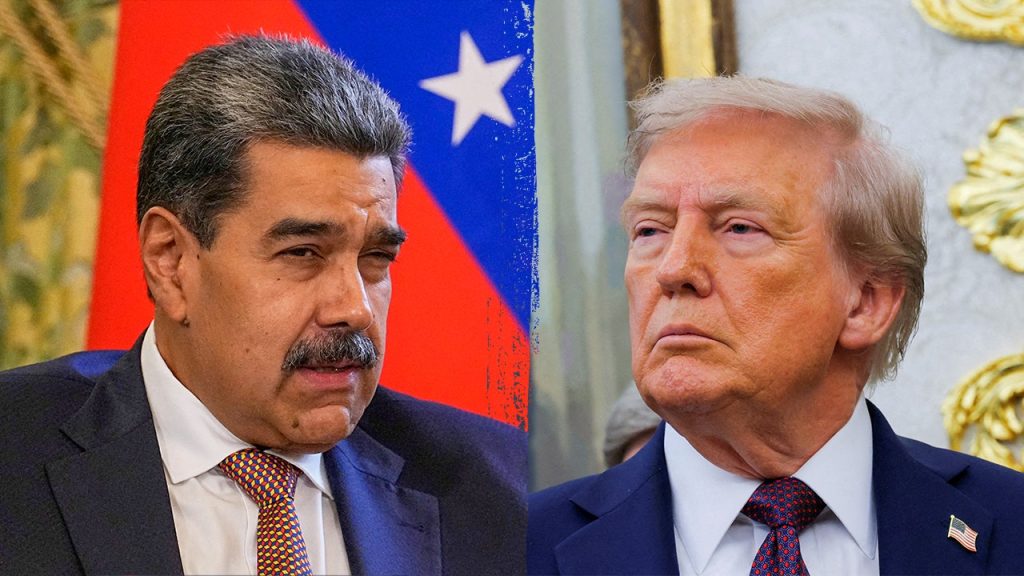US Military Tensions Rise with Venezuela as Trump Administration Takes Hard Stance on Drug Trafficking
The Pentagon confirmed a tense encounter between Venezuelan military aircraft and a US Navy vessel in international waters on Thursday, marking a significant escalation in relations between the two countries. This confrontation, described by the Defense Department as a “highly provocative move,” comes just days after an unprecedented US Marine strike on a cartel vessel that resulted in the deaths of 11 members of Tren de Aragua, a Venezuelan gang recently designated as a terrorist organization by the United States. The incident highlights the Trump administration’s increasingly aggressive approach to combating narcotics trafficking and terrorism in the Caribbean region, with the Pentagon characterizing the Venezuelan government as a “cartel” and warning them against further interference with US counter-narcotics operations.
In response to growing tensions and as part of its enhanced counter-narcotics strategy, the Pentagon is deploying ten F-35 stealth fighter jets to Puerto Rico. This significant military positioning represents a substantial escalation in the resources being dedicated to anti-drug operations in the Caribbean. Tuesday’s strike against the cartel vessel marked a dramatic shift in US tactics, moving beyond the traditional approach of seizures and apprehensions toward direct military action against suspected drug traffickers. The Trump administration appears to be signaling a new era in its fight against international cartels and gang organizations, one that embraces more aggressive and potentially lethal measures to disrupt the flow of narcotics into the United States.
Secretary of State Marco Rubio, speaking during a visit to Ecuador on Thursday, announced that two additional gangs were being reclassified as foreign terrorist organizations, further expanding the legal framework for aggressive action against these groups. Rubio didn’t mince words when discussing Venezuelan leadership, explicitly condemning President Nicolás Maduro as “an indicted drug trafficker” and “a fugitive of American justice.” He referenced specific legal actions against Maduro, noting that a grand jury in the Southern District of New York had indicted the Venezuelan leader based on presented evidence, with a superseding indictment later detailing Maduro’s alleged involvement in drug trafficking operations.
The rhetoric from US officials suggests a coordinated international effort may be forming to combat drug trafficking organizations using more direct methods. Rubio indicated that “cooperative governments” would assist the United States in identifying drug traffickers with the intention to “blow them up, if that’s what it takes.” This blunt language reflects the administration’s apparent willingness to employ lethal force against those involved in the narcotics trade, representing a significant departure from previous approaches that emphasized law enforcement over military action. The escalating tensions between the US and Venezuela illustrate the complex interplay between counter-narcotics operations, terrorism designations, and broader geopolitical rivalries in the Western Hemisphere.
The recent military strike and subsequent confrontation with Venezuelan aircraft come amid a backdrop of longstanding political tensions between Washington and Caracas. The US government has refused to recognize Maduro’s presidency following disputed elections, instead supporting opposition figures and implementing various economic sanctions aimed at pressuring the regime. By framing its actions within the context of counter-terrorism and anti-narcotics operations, the Trump administration may be seeking to establish new justifications for applying pressure on the Venezuelan government while simultaneously addressing genuine security concerns about drug trafficking in the region. The terrorist designation of groups like Tren de Aragua provides legal frameworks that enable more aggressive actions against these organizations and potentially against governments perceived to be supporting them.
As this situation continues to develop, questions remain about the potential for further escalation and the broader implications for US-Venezuela relations and regional stability. The deployment of advanced military assets like F-35 fighters represents a significant investment of resources and suggests the United States is preparing for the possibility of continued confrontations. Meanwhile, the Venezuelan government’s decision to send military aircraft near US naval vessels indicates they may be willing to challenge what they likely view as American overreach in their sphere of influence. This delicate and potentially volatile situation will test both nations’ diplomatic capabilities and restraint, while neighboring countries and international organizations watch closely to see whether these incidents represent isolated flashpoints or the beginning of a more systematic confrontation between the United States and Venezuela over drug trafficking, territorial integrity, and regional influence.


